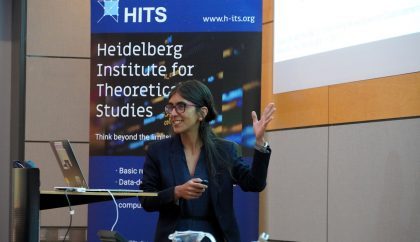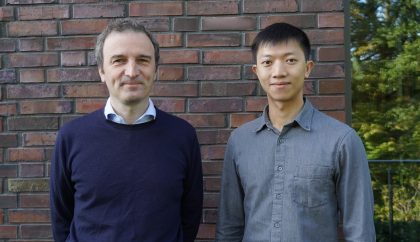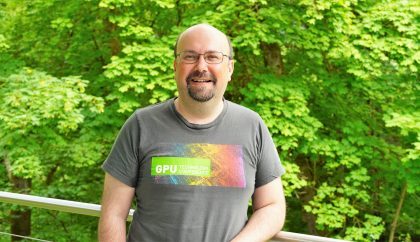
On Chemistry and Machine Learning: Fernanda Duarte at the HITS-SIMPLAIX Colloquium
On 28 September 2023, Fernanda Duarte from University of Oxford gave a joint HITS-SIMPLAIX Colloquium on exploring chemical reactivity in the age of …

In “Campus Report”: The universal sound of black holes (in German)
The earth usually seems very big to us and, if we disregard the climate, also quite stable. In fact, it is …

Simulating the common envelope
HITS welcomes Croucher Fellow Mike Lau as Postdoc in the Physics of Stellar Objects group

Mehr als nur ein Gummiband – unsere Forschung einfach erklärt (German only)
Das Strukturprotein Kollagen ist das häufigste Eiweiß im menschlichen Organismus. Neue Forschungsergebnisse decken unerwartete Eigenschaften auf. Wenn Sie mehr wissen …

Deadline 28 September: Call for “HITS Journalist in Residence” in 2024
Call for applications: HITS Journalist in Residence program open for science journalists. Applications deadline: 28 September 2023

Issue 3 | 2023
This summer, we celebrated a special event: the first onsite meeting with our alumni in four years, intertwined with a “Math …

Dieter Kranzlmüller appointed third Board Member of the HITS Foundation
The council of the HITS Foundation has appointed Professor Dieter Kranzlmüller as third director of the board. He joined the …

Olexandr Isayev
Klaus Tschira Guest Professor, May – June 2023 Sitting on the terrace and glancing at the young researchers at the adjacent table who …

Philipp Podsiadlowski
Klaus Tschira Guest Professor, May, October – December 2023 Outside his office window lies the lush, spring green part of the HITS garden, …

Sarbani Basu
Klaus Tschira Guest Professor, September – November 2022 “It´s almost like being a postdoc again”, says Sarbani Basu, sitting at the desk …